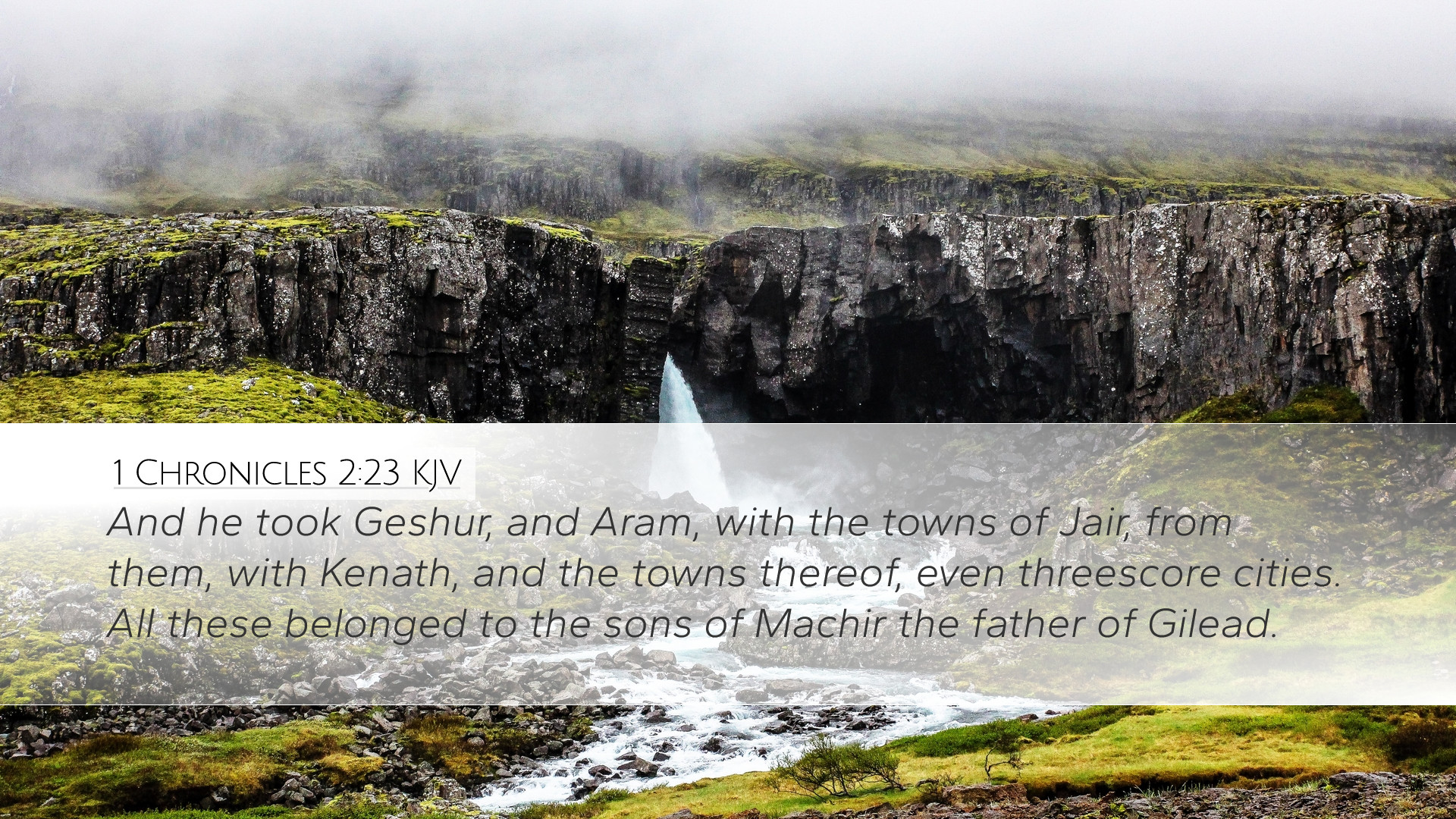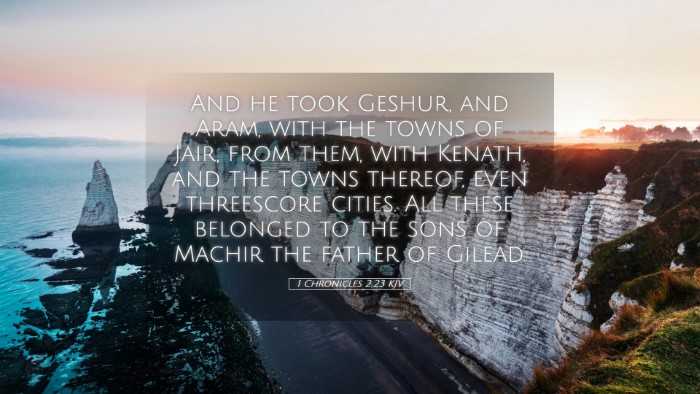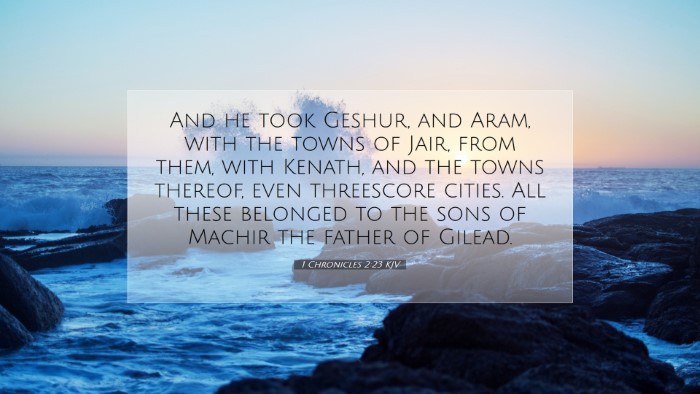Commentary on 1 Chronicles 2:23
1 Chronicles 2:23 states: "And what time he slew them, he dwelt in their cities, and dwelt among the inhabitants of the land." This verse occurs within the genealogical context of the tribe of Judah and highlights significant historical perspectives about the descendants of Judah and their territorial aspects.
Introduction
This commentary encompasses insights drawn from notable public domain works, particularly those of Matthew Henry, Albert Barnes, and Adam Clarke. The analysis seeks to provide depth and clarity regarding the verse’s context, its implications, and observations made by theologians and scholars over time.
Contextual Overview
1 Chronicles chronicles the history and lineage of the Israelites, emphasizing the importance of family lineage and the roles they played in the unfolding narrative of God's covenant with His people. Chapter 2 specifically focuses on the descendants of Judah, a central figure in the lineage of Jesus Christ.
Historical Context
The verse centers around certain pivotal figures of Judah’s descendants, particularly mentioning Heshbon and the cities they captured. It reflects on a time of warfare and conquest, underscoring the impact of such actions on future settlements and territorial claims.
Thematic Insights
Divine Providence and Settling in the Land
As noted by Matthew Henry, the Bible continually illustrates God's providence in guiding His people to their rightful inheritance. In 1 Chronicles 2:23, we see the outcome of conquest leading to habitation; these details are a reminder of God's faithfulness to His promises regarding the land.
Judah’s Conquests
Albert Barnes emphasizes that the "cities" referred to in the verse are emblematic of the victories obtained through divine favor. Judah's triumph not only showcases military success but also signifies the establishment of an area where God’s chosen people could dwell and thrive.
Significance of Dwellings
The act of "dwelling" is deeply significant in biblical texts. Adam Clarke posits that this reflects a sense of permanence and belonging. The Hebrew term connotes more than mere habitation; it suggests a transition into a state of security and identity within the land.
Spiritual Lessons
This verse offers important spiritual lessons applicable for believers today.
- Victory and Inheritance: Just as Judah experienced victories that came with divine assistance, believers are reminded that they too can draw from God's strength in their spiritual battles, ultimately leading to experiencing the fullness of God’s promises.
- Importance of Community: The mention of dwelling among the inhabitants signifies integration within a community. Similarly, Christians are called to engage with and reflect God’s presence in their communities.
- Faithfulness: The narrative illustrates God’s faithfulness, a theme that resonates through the entirety of Scripture. Engaging with God encompasses trust in His sovereignty amidst changing circumstances.
Theological Implications
This verse serves as a foundational point for a broader understanding of God’s covenantal promises, particularly through the line of Judah. Theology students and scholars should note the critical connection between conquest and divine promise. The land that Judah inhabited not only belonged to them physically but was also a crucial component of God’s redemptive plan for all humanity.
Jesus and the Lineage
Furthermore, the ancestry of Jesus is traced back to the tribe of Judah. The narrative in 1 Chronicles enriches understanding of the Messiah’s heritage, connecting the themes of conquest, territory, and fulfillment of God's promise in the New Testament.
Conclusion
1 Chronicles 2:23 serves as a reminder of God’s promise and faithfulness and the significance of dwelling in the land that God provides. It encapsulates essential themes relevant to understanding God's plan through history, and it invites reflection on the Christian's journey of faith and community. By learning from the actions and experiences of Judah’s descendants, believers today can appreciate the depth of their spiritual inheritance and the communal aspects of their faith.


